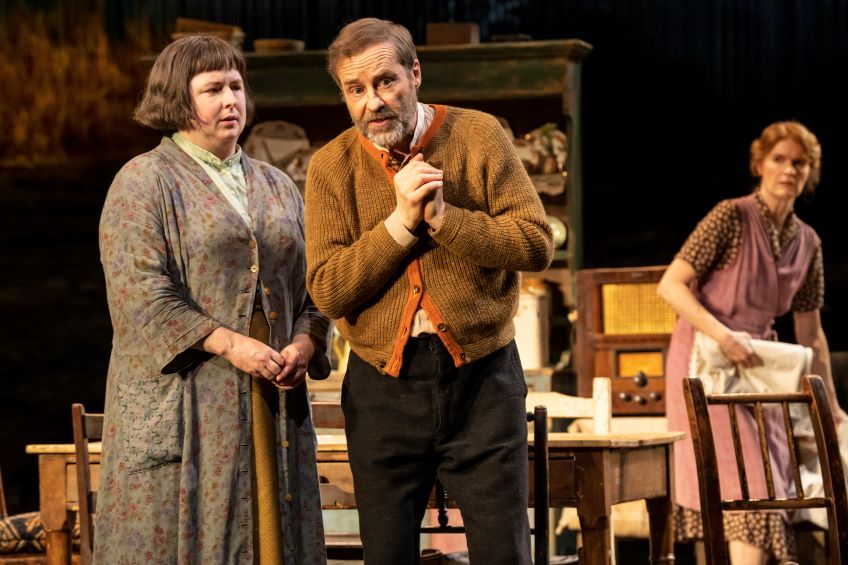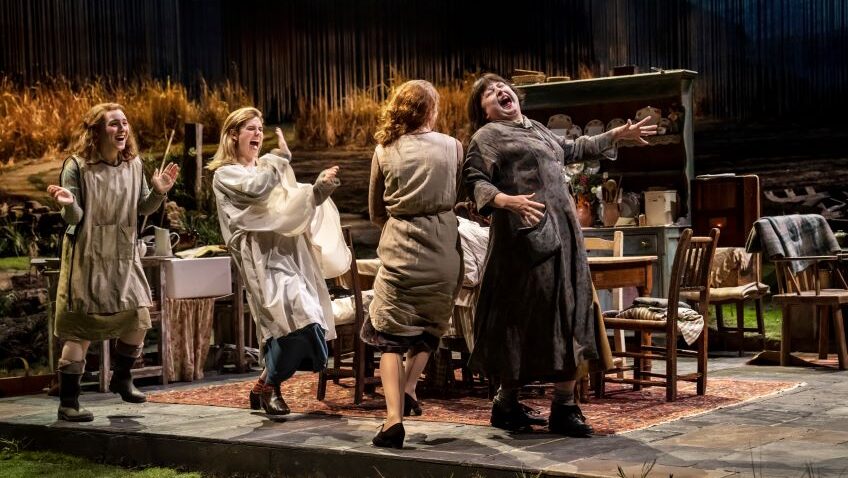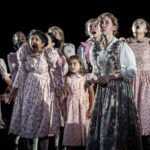The haunting, heart-breaking autobiographical Dancing at Lughnasa, Brian Friel’s most popular play, premiered in Dublin in 1990 and has been staged all over the world and filmed, winning many awards.
The play, a microcosm of rural life, written with such warmth, humour, nostalgia and sadness, is dedicated to the memory of five brave spinsters: his mother and her sisters, who lived together in poverty in County Donegal in 1936.
The sisters would have loved to have gone to the harvest festival of Lughnasa but the prudish eldest sister wouldn’t allow them to go, thinking it unseemly. In ancient times, the festival was dedicated to the pagan god, Lugh. In modern times the festival is meant to celebrate St Patrick’s defeat of paganism; but it does nothing of the sort and becomes an excuse for primitive behaviour.
A key moment in the play is the actual dancing, when the women, suddenly energised by the music coming out of their radio and encouraged by Maggie, the wildest sister, release their pent-up sexual frustration, twirling and stamping in bacchanal abandon.

Josie Rourke’s excellent production, beautifully designed by Robert Jones, is excellently acted by a strong ensemble. Tom Vaughan Lawlor is cast as Michael whose memories of his childhoods are the play. He acts as narrator.
Alison Oliver is Michael’s unmarried mother in love with a Welsh charmer and loafer, a liar and a clown, played by Tom Riley with delightful comic swagger. There is a magical moment when they fox-trot.
Siobhan McSweeney plays Maggie with robust good humour. Justine Mitchell is Kate, the schoolmistress who is sacked. Blaithin Mac Gabhann is the simple minded Rose who believes she is loved and loses her virginity to a man who does not love her.
Louisa Harland is Agnes who loses her job when the glove factory closes. She and Rose, condemned to a dreadful life in London, die destitute.
Ardal O’Hanlon is their brother, a missionary, recently returned after twenty five years in a leper colony in Uganda, who has been sent home in disgrace by the Church. Instead of converting the natives to Christianity they have converted him to paganism. He took an active part in their rites and rituals and came to believe polygamy is a good thing.
Hopefully, the National Theatre’s success will lead to more revivals of Brian Friel’s plays. Faith Healer is to be staged next year. It would be great if Philadelphia, Here I Come! were also to be revived.
To learn more about Robert Tanitch and his reviews, click here to go to his website. 




